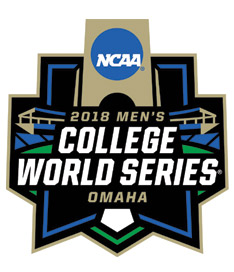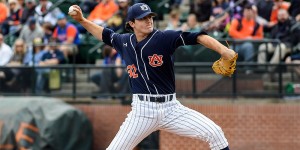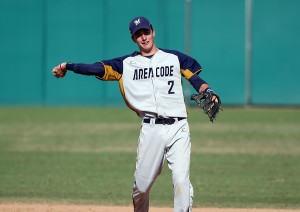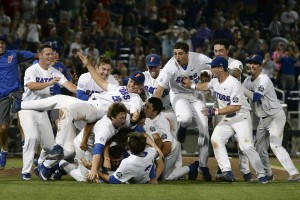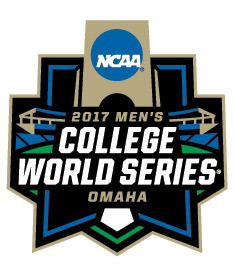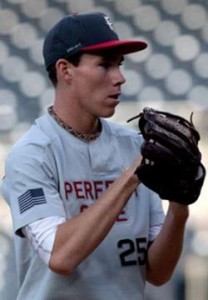
Carter Stewart turned down more money than he’s likely to see even if he’s an All American in 3 years time.. photo via PerfectGame
Updated for the 2019 draft
In 2018, just four players from the top 10 rounds failed to come to terms with their drafting team. This was slightly higher than the previous couple of seasons, but interesting this year because all four non-signing players were basically the same situation: high-end 1st round prep players with big price tags who in the end each turned down at least $2M each (and in some cases a ton more) to go off to school and lock themselves in for 3 years of playing for unaccountable, arm shredding, self-interested NCAA coaches who often could care less about player development and more about their next conference title and regional hosting bid.
And each of them probably made a huge mistake.
Its a common refrain among pundits in the amateur baseball world (Keith Law in particular) that HS players should “take the money” if they’re drafted high enough. Certainly any first rounder would be a fool to turn away that kind of money, and mostly any prep player offered something in the upper 6 figure range should give serious consideration. MLB contracts generally include college tuition … so even if you sign out of HS you still have 4 years fully paid for in case you wash out. So instead of gambling on your health, or the fickleness of the baseball draft (where one bad start can cost you 30 spots in the draft and millions of dollars), take the cash when its offered.
But, don’t take our word for it. Lets look at the empirical evidence of every player over the past seven drafts who has forgone the cash to see if there’s any trends.
Here’s a summary of the last few years of players who did not sign from the top 10 rounds. This only goes back to 2012, since that’s the beginning of the new draft rules.
- 2021: 3
- 2020: ?
- 2019: 2
- 2018: 4 (all 1st or supp-1st rounders)
- 2017: 3
- 2016: 2
- 2015: 6
- 2014: 6 (two of which were Nats picks: Andrew Suarez and Austin Byler in that ill-fated draft class, and one more who didn’t sign thanks to Houston’s screwing up the Brady Aiken deal and who was eventually granted free agency).
- 2013: 8
- 2012: 8
These are the total non-signings for the top ten ROUNDS of draftees, meaning anywhere between 300 and 350 guys comprising the top 10 rounds and supplementals. So in the seven years and roughly 2200 players drafted in the top 10 rounds in the last 7 seasons, a grand total of 37 have failed to sign.
Side note: each year we hear about all these players who aren’t going to sign or that negotiations are tough, when in reality the modern CBA rules nearly guarantee 100% signing among drafted players (unless there’s a huge misunderstanding on draft day, or a huge disagreement about medicals). The draft pools are structured so that the penalties for NOT signing players can cascade and affect your ability to sign other players (see Houston’s issue in the 2014 draft), so teams are now basically calling players in advance and saying, “If we draft you at X, will you sign for $Y?” … so the only reason players don’t sign is if there’s a serious breakdown or mis-understanding.
So, why do i say that you should always take the money? Well, lets ask ourselves: out of these 37 players who didn’t sign.. who actually IMPROVED their draft status by not signing? Lets go year by year and look at the players who failed to sign.
(a caveat here: I did not look at the dollar amounts offered here; this is basically draft round analysis. Its possible that a 5th rounder in one year went in the 8th the next and got offered more money … but its quite rare with the new draft rules and bonus pools. Everything changed with the new CBA that went into effect in 2012. The Nats in particular spent $14.6M on draft bonuses in 2011. The next year? $4.6M, with most of it going to one player in Lucas Giolito).
2021: 3 players did not sign from the top 10 rounds:
- Kumar Rocker, RHP Vanderbilt, in a well publicized blow-up, the Mets drafted Rocker 10th overall and made a huge splash announcing a $6M over-slot bonus .. then ran into issues with his medicals, resulting in the two sides failing to agree on anything and the Mets passing on the Vanderbilt star altogether. Rocker’s agent (ahem, “advisor”) Scott Boras of course refused to make his medicals available ahead of time, and of course claimed that there was no injury, but the damage is now done. Rocker cannot go back to school, and will likely go to independent ball to re-enter the draft in 2022.
- Jud Fabian, OF Florida; saw his draft stock fall from a possible top-5 pick all the way out of the first round. But, he apparently had a $3M deal with some team in the second, but those plans were foiled when Boston selected him at the beginning of the 2nd round. Fabian stuck to his bonus demands, and the two sides could not reach an agreement. Fabian will go back to school.
- Alex Ulloa, prep SS from Texas failed to come to terms with Houston as a 4th round pick. He’s Oklahoma State committed, but rumblings he may go Juco to re-enter the draft in 2022.
Verdict: Its hard to believe Rocker will be able to beat $6M, but who knows. Fabian will lose leverage coming back in 2022 as a senior, and Ulloa will have some time to improve on his 4th round bonus dollars.
2020: in a shortened 5-round Covid-related draft, not one player picked in the 5 rounds failed to sign.
2019: 2 players did not sign from the top 10 rounds
- Brandon Sproat, RHP Fla HS 7th/205 overall by Texas. $222,100 slot value, which wasn’t enough to buy Sproat out of his commitment to Florida.
- Wyatt Hendrie, C from Calif Juco 10th/312 overall by Chicago Cubs. $142,200 slot value. Cubs seemingly ran into slot issues with both 10th and 11th rounder, and Hendrie wouldn’t take under slot.
Verdict: both players are still in College as of mid 2021; Hendrie was draft eligible in the shortened 2020 draft but was not taken and is now enrolled at San Diego State, presumably not eligible until 2022.
2018: 4 players did not sign
- Carter Stewart, RHP Fla HS. 1st/8th overall. Atlanta didn’t like Physical, offered 40% of slot value ($1.9M); initially slated to Mississippi State. Update: However, he did an about face, went to a Juco instead with the plan on re-entering the 2019 draft. When he struggled in Juco and fell to a mid 2nd round projection … he attempted an end-around of the MLB draft rules and signed to play in japan, a situation I detailed in this space. 2021 update: he has graduated the Japan minor leagues into the majors at this point but has not found his foothold there yet.
- Matt McLain: 2B Calif HS. 1st/25: Asked $3M, Arizona offered $2.6M didn’t budge, going to UCLA. Update: picked 17th overall in the 2021 draft and signed for $4.63M.
- JT Ginn: RHP Miss HS. 1st/30th: LA dodgers offered $2.4M, asking $2.9M, going to Mississippi State. Update: drafted 2nd round/52nd overall in 2020 draft, signed for $2.9M with the Mets in a well over-slot deal. So two years later he got his asking number.
- Gunnar Hoglund: LHP Fla HS. 1supp/36: Pittsburgh didn’t like physical, low-balled and he declined. going to Ole Miss. 2021; was projected as a top 10 pick, hurt his arm, had TJ but still got drafted 19th overall by Toronto and signed for $3.25M.
McLean drastically improved his stock, Ginn got what he wanted, and Hoglund (despite his injury) got paid. I already detailed why I think Stewart’s deal is smart.
Verdict: All four made the right decision.
2017: 3 players did not sign
- Drew Rasmussen, RHP, Oregon State, 1s/31st overall. Failed to sign with Tampa, who (I guess) didn’t like his medicals. He was coming back from TJ and only had a few weeks of action before the draft. Went 6th round in 2018 to Milwaukee in 2018
- Jack Conlon, RHP, Clements HS (Sugar Land, Texas). 4th round/128 overall. Failed to sign with Baltimore, went to Texas A&M. Update: left TAMU, went to San Jacinto, then enrolled in Rice and sat out 2020. However, he wasn’t on the 2021 roster, and its unclear where he’s playing at this point.
- Jo Jo Booker, RHP, Miller HS (Brewton, Ala.). 5th round/145 overall. failed to sign with LA Angels, with to South Alabama. Was not drafted in 2020 or 2021 out of USA; unclear if he will return for a 5th season or if he is done.
Two players who ended up playing themselves out of any bonus dollars. Rasmussen didn’t turn down the Rays as much as they refused to tender him a contract … they must have tendered him something because they got a comp pick in 2018 draft. So he turned down 40% of first round money in 2017 to sign an under-slot deal in the 6th round of 2018 ($135k, just $10k more than the non-top 10 rounds minimum). I’d say this was a bad move by the player unless Tampa flat out refused to pay a dollar.
Verdict: 1 worsened his draft position, 2 missed out on any draft money.
2016: 2 players did not sign
- Nick Lodolo: 1S/41st overall; LHP from Damien HS in California. failed to sign with Pittsburgh, went to TCU instead, draft eligible in 2019. In 2021, drafted 7th overall, signed for $5.43M.
- Tyler Buffett: 7th/217 overall; RHP, failed to sign with Houston. returned to Oklahoma State, drafted in 6th round in 2017 and signed with Cincinnati
Lodolo went to school (an arm-shredder program in TCU even) and went from 41st overall to 7th overall, with probably 3x the bonus. Furthermore, by 2021 he was one of the best pitching prospects in the game. Meanwhile Buffett improved his draft position one round by going back to school.
Verdict: 1 drastically improved his draft pick and money, 1 improved his draft position one round.
2015: 6 guys did not sign.
- Kyle Funkhouser: 1st/35th overall: RHP from Louisville, failed to sign with LA Dodgers, turning down an above-slot $2M. 4th rounder in 2016, signed with Detroit.
- Brady Singer, 2nd/56th overall: RHP Florida HS. failed to sign with Toronto, went to Florida and was 1st rounder in 2018, signed with Kansas City
- Jonathan Hughes, 2nd/68th overall: RHP Georgia HS. failed to sign with Baltimore, went to Georgia Tech and not even drafted in 2018…
- Kyle Cody, 2nd/73rd overall: RHP U Kentucky. failed to sign with Minnesota, drafted in 6th round in 2016 and signed with Texas
- Nicholas Shumpert, 7th/220th overall. SS Colorado HS. failed to sign with Detroit. Went to San Jacinto CC, drafted in 28th round 2016 by Atlanta and signed.
- Kep Brown, 10th/311 overall. RF South Carolina HS, failed to sign with LA Dodgers. went to Juco, then to UNC-Wilmington, not drafted in 2018.
Funkhouser was the biggest “whoops” here; a poor spring took him from his pre-season top 10 draft position all the way out of the first round, but he still demanded upper 1st round money. He didn’t get it … and then fell to the 4th round the next year. That was a big fail. Singer clearly improved on his 2nd round status by going to college. Cody slipped from being a 2nd rounder to a 6th rounder. The other three guys drastically fell on draft boards; one of them going from a 10th rounder to not even being drafted.
Verdict: 1 improved, 5 hurt draft stock
2014: 6 failed to sign
- Brady Aiken: 1/1 overall, RHP from San Diego HS. failed to sign with Houston, went to IMG Academy in FL, drafted 1/17 by Cleveland
- Andrew Suarez: 2nd/57 overall LHP from UMiami, failed to sign with Washington. Drafted 2nd round/61st overall in 2015 by San Francisco
- Trevor Megill; 3rd/104th overall RHP from Loyola Marymount. failed to sign with Boston, drafted 7th/207 in 2015 draft and signed with San Diego
- Jacob Nix: 5th/136 RHP from Los Alomitos HS; couldn’t sign when Tampa lost bonus money, sued, FA, signed with San Diego
- Zack Zehner: 7th/204 OF from Cal Poly, failed to sign with Toronto. Drafted 18th round 2015 and signed with NYY
- Austin Byler, 9th/274 1B from nevada-Reno. failed to sign with Washington, drafted 11th round in 2015 and signed with Arizona
Aiken became quite the rarity; the first #1 overall baseball pick to fail to sign in 30 years. But his lack of signing cascaded and cost the Astros both their 5th rounder Nix and another player later on thanks to the new draft rules on bonus pools; Nix ended up being declared a FA in a face-saving move by MLB so as not to admit that their new bonus cap circumvention rules were BS. Aiken had no where to go but down from 1-1 so he obviously cost himself money. The others all fell, if only slightly in Suarez’s case.
Verdict: 1 didn’t count, 5 lowered draft stock
2013: 8 failed to sign
- Phil Bickford: 1/10 RHP California HS. Toronto failed to sign. went to Southern Nevada juco, drafted 1/18 by SF and signed.
- Matt Krook 1s/35 LHP calif HS. Miami failed to sign, went to Oregon State, drafted 4th round by SF in 2016
- Ben DeLuzio 3rd/80 SS from Fla HS. Miami failed to sign. Went to Florida State, played 4 years … undrafted out of college, NDFA with Arizona
- Ben Holmes, 5th /151 LHP Oregon State. Philly failed to sign. went 9th round in 2014
- Jason Monda 6th/181 OF Washington State. Philly failed to sign … then accused him of NCAA violations. he wasn’t drafted again and quit to go to Med school
- Stephen Woods 6th/188 RHP NY HS: Tampa failed to sign, went to Suny-Albany, drafted 8th round 2016 by SF and signed
- Dustin DeMuth 8th/230 3B from Indiana, Minnesota failed to sign, became 5th rounder in 2014 and signed with Milwaukee
- Ross Kivett 10th/291 2B from kansas State. Cleveland failed to sign, became 6th rounder in 2014 and signed with Detroit
Bickford fell 8 slots year over year but still fell. DeMuth and Kivett both improved their stock. The rest fell, drastically in some cases.
Verdict: 2 improved, 6 fell
2012: 8 failed to sign
- Mark Appel 1/8 RHP Stanford by Pittsburgh. failed to sign, was 1/1 in 2013 with Houston
- Teddy Stankiewicz 2/75 RHP from Texas Hs. failed to sign with Mets, went Juco, 2/45 in 2013 by Boston
- Alec Rash, 2/95 by Philadelphia from IA HS. went to Missouri, 2015 drafted in 23rd round by Washington but still didn’t sign; quit baseball and started playing NCAA basketball
- Kyle Twomey, 3/106 LHP Calif HS Oakland. Drafted 13th round 3 yrs later out of USC by Chicago Cubs.
- Brandon Thomas 4/136 OF from Ga Tech; didn’t sign with Pittsburgh, drafted 8th round one year later and signed with NYY
- Colin Poche 5/162 LHP texas h s. failed to sign with Baltimore, went to Dallas Baptist, undrafted Jr year, drafted 14th round 2016 by Arizona
- Nick Halamandaris 8/251 1B Calif HS. failed to sign with Seattle, played 4 years at cal, undrafted jr and Sr year, NDFA with Seattle, played one season
- L.J. Mazzilli 9/280 2B from UConn. 4th rounder in 2013 signed with NY Mets
Appel managed to improve from 8th overall to 1st overall. Stankiewicz also improved his stock about a round’s worth. Mazzilli improved from a 9th rounder to a 4th rounder. The others all fell.
Verdict: 3 up, 5 down.
Summary: of the 37 players who failed to sign:
- 7 too early to tell yet (7 hs, 0 coll)
- 22 hurt their draft stock by failing to sign (12 HS, 10 coll)
- 7 improved their draft stock. (1 HS, 6 coll). Of those who improved:
- Two improved one round (1 HS, 1 coll) HS kid was Brady Singer
- Two improved slightly within the same round (2 coll): Mark Appel, Stankiewicz
- One went from 8th round to 5th round (1 coll)
- One went from 10th round to 6th round (1 coll)
- One went from a 9th rounder to a 4th rounder. (1 coll)
- 1 didn’t really count b/c of the Houston 2014 draft bonus shenanigans (Jacob Nix, HS)
So there you have it. 7 of 37 turned down money and look like they slightly made out (19%). 22/37 (60%) did not … and in some cases clearly cost themselves millions of dollars. And even those 7 who did improve their ranking … not one of them in my opinion drastically improved their stock by going to college. In fact, you can make the argument that getting drafted in the 8th round in one year, playing another year in college and then going in the 5th round probably *hurts* a player’s pro prospects because now he’s a year older versus his peers and has lost a year of pro development time. A 22 yr old college senior draftee is already “old for the level” until he gets to at least Low-A, which is no guarantee even in his second pro year.
Now, has it ever worked out for a player to turn down significant 1st round money? Yeah a couple times; Mark Appel gambled and improved his stock just before the new CBA took hold; in fact he managed to go 1-1 despite being a college senior with zero leverage. Garrett Cole also made out by going to school. So did a few others in the pre-2012 CBA eras. But its a rarity; I’ve got another post that goes over these and some of the biggest nightmares for a later date.
Food for thought.
